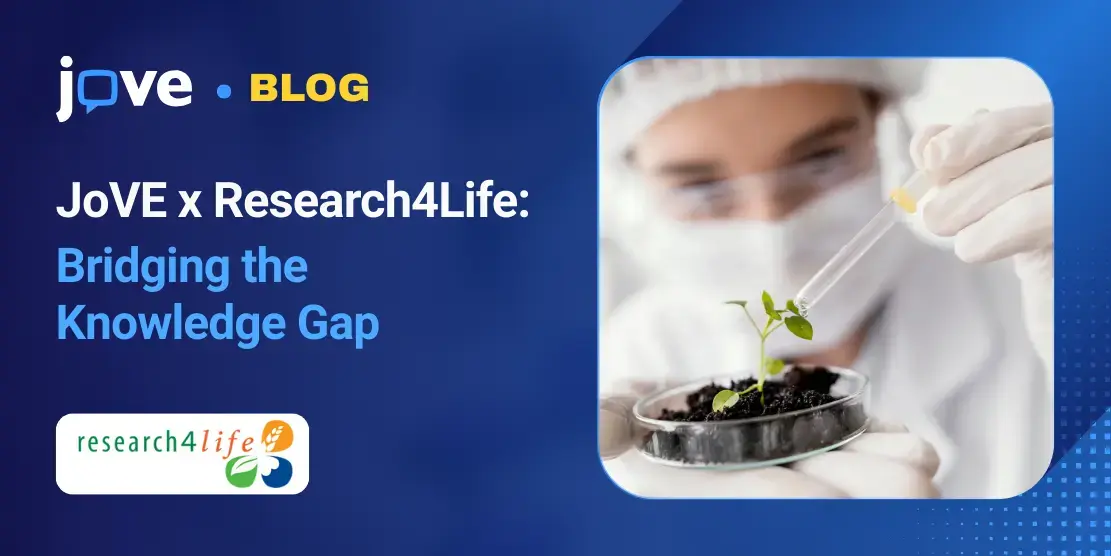In an interconnected world, access to knowledge and innovation should transcend geographical and economic boundaries. This is not always the reality. Low- and middle-income countries (LMICs) comprise 85% of the world’s population, yet they make up just 0.2% of the global research workforce.1
Researchers in resource-constrained settings frequently struggle with limited access to essential information and adequate funding, hindering their ability to conduct impactful studies and contribute meaningfully to their fields. Beyond just resources, they face hidden barriers to recognition, collaboration, and participation in global decision making.
Global Knowledge Access
For over two decades, Research4Life has worked to bridge the global knowledge gap by providing institutions in LMICs with free or low-cost access to high-quality academic resources. Their goal is to strengthen research, education, and policymaking by ensuring that reliable scientific content is within reach for those who need it most.
Through a unique partnership with UN agencies, leading universities, and publishers, Research4Life supports thousands of institutions across 125 countries. Its growing digital library now offers 200k+ peer-reviewed articles, books, and databases related to life, physical, and social science fields. Along with these resources come extensive support, training, and capacity-building opportunities.
Research4Life is committed to reducing disparities and ensuring all individuals can both contribute to and benefit from scientific advancements. Take a look at this infographic from their 2024 Impact Report quantifying the remarkable successes that the organization has achieved:

JoVE’s Commitment to Scientific Access
JoVE, a long-standing proud partner of Research4Life, has recently increased its support by becoming a funder of Friends of Research4Life. This US-based nonprofit was established as a means to grow and sustain Research4Life, enabling the expansion of vital programs, training, outreach, and infrastructure.
Since 2013, JoVE has provided access to its extensive video platform for researchers and educators in eligible Research4Life countries. Video methods play a vital role in addressing the global reproducibility crisis by removing ambiguity, reducing error, and serving as virtual training tools when on-site guidance is hard to come by. For universities with limited lab infrastructure or funding, simply observing a skilled professional execute a protocol can massively accelerate learning.
JoVE CEO Moshe Pritsker was recently interviewed by Research4Life about further investing in eliminating global research disparities through Friends of Research4Life. Moshe highlighted JoVE’s commitment to making knowledge more accessible, reproducible, and impactful across the world. This aligns with Research4Life's goal to be an "enabler for the future of humanity" by expanding global knowledge access.
Access to knowledge shouldn’t depend on where you live. JoVE was founded on the belief that anyone, anywhere, with a device in their hand, should be able to access high-quality knowledge.
– JoVE CEO Moshe Pritsker
JoVE’s commitment goes beyond providing content to working closely with librarians and researchers around the world to understand their specific needs and challenges. This hands-on approach is supported by dedicated teams who engage directly with institutions in their local languages, building trust and long-term collaboration. To further support the academic community, JoVE also offers free monthly webinars focused on professional development and practical research and teaching strategies.
Strengthening its bond with Research4Life, JoVE will be attending the annual General Partners Meeting for the first time in 2025. We look forward to connecting with different stakeholders, gaining global insights, and shaping the future of this collaboration.
Looking Ahead
Accessibility in research is crucial to solving global challenges. Together, JoVE and Research4Life envision a future where labs everywhere possess the tools and knowledge to produce reliable, reproducible science. This widespread access to research is a powerful catalyst for economic and social growth in LMICs. It empowers communities to actively participate in the global scientific conversation and directly address critical local and global issues, including poverty, healthcare, and education.
- UNESCO. (2021, May 5). Researchers per million inhabitants by country, 1996–2018 (in full-time equivalents) | 2021 Science Report. https://www.unesco.org/reports/science/2021/en/dataviz/researchers-million-habitants

